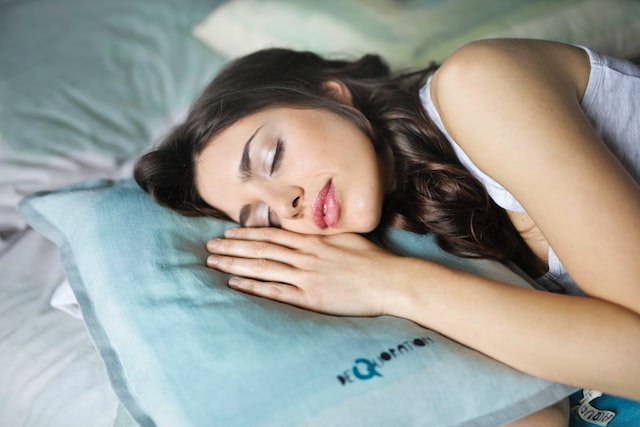What are Sleep disorders?
Sleep disorders, also known as sleep-wake disorders, are conditions in which an individual suffers from issues with the quantity, timing, and quality of their sleep. These issues cause daytime distress and a decrease in one’s ability to function.
Sleep-wake disturbances frequently develop in tandem with other medical conditions or other mental health issues such as clinical depression, generalised anxiety disorder, or cognitive difficulties. There are numerous subtypes of sleep-wake disorders, the most common of which is known as insomnia .
Other sleep-wake disorders include narcolepsy, parasomnias, and obstructive sleep apnea, in addition to restless leg syndrome and narcolepsy.
Trouble falling or staying asleep can be a symptom of both physical and mental health issues. Sleep issues can be both a contributor to or an aggregator of existing mental health concerns as well as a sign of other mental health conditions in their own right.
About one-third of adult people report having symptoms of sleeplessness, and between 6 and 10 percent of those people fit the criteria for insomnia disorder to avoid insomnia and make use of natural melatonin gummies to help you sleep better.


Importance of good sleep
Sleep is an essential component of human existence and plays a vital role in maintaining both physical and mental well-being. There are two different stages of sleep that often alternate between three and five times throughout the course of a single night.
When you go to bed is also quite significant. Your body operates, on average, according to a 24-hour cycle known as the circadian rhythm, which signals to you when it is time to go to sleep.
The amount of sleep that is required of us varies not only with our age but also from person to person. According to the findings of the National Sleep Foundation, the average adult needs anywhere between seven and nine hours of sleep per night.
Also read: Best Sleeping Habits for The Older Adults
Consequences of Lack of Sleep
There is a wide range of potential adverse effects that might result from inadequate or poor quality sleep. The most evident concerns are feelings of exhaustion and diminished energy, impatience, and difficulties concentrating.
It’s also possible for your mood and your capacity to make decisions to be impacted. Depression and anxiety symptoms frequently occur hand in hand with difficulties falling or staying asleep. Sleep issues can increase mental health conditions like depression and anxiety.
Both insufficient sleep and excessive sleep have been related to a number of long-term health conditions, including diabetes and heart disease. Sleep disruptions can also serve as an early indicator of more serious medical and neurological conditions, such as Parkinson’s disease, congestive heart failure, and osteoarthritis.
Insomnia Sleep Disorder
Insomnia is the most frequent and common sleep disorder, and it is characterized by difficulties falling asleep or remaining asleep. In adults, around one third report having some symptoms of insomnia, 10 to 15 percent report having trouble functioning during the daytime, and 6 to 10 percent have symptoms severe enough to fulfill the criteria for insomnia disorder.
According to some estimates, forty to fifty percent of people who experience insomnia also have another mental condition.
Diagnosis of Insomnia
If you’re having trouble sleeping at least three nights a week for at least three months and it’s affecting your life significantly (at home, at work, or in school), you may have insomnia disorder. People who have trouble sleeping don’t necessarily have emotional or behavioral issues.
In order to diagnose insomnia, a doctor must first rule out the possibility of other sleep disorders, the adverse effects of medications, substance abuse, depression, and other medical and mental problems. Certain medications and health issues might make it difficult to fall or stay asleep.
A patient’s medical history, a physical exam, the keeping of a sleep journal, and clinical testing are some of the components that could make up a full evaluation of insomnia or other sleep issues.
Through the use of a sleep study, a doctor is able to determine not only how long you are sleeping but also how well you are sleeping, as well as pinpoint specific sleep problems. A record of your sleeping patterns that you can share with your doctor is called a “sleep diary.”
It includes information like when you go to bed, when you fall asleep, when you wake up, when you get out of bed, when you take naps, when you exercise, when you eat, and when you drink alcohol or caffeinated beverages.
Sleep disturbances can start at any age, although the majority of people experience them in their early 20s. Age is commonly associated with a specific kind of insomnia. Having trouble falling asleep is more frequent among young individuals. Middle-aged and older persons are more likely to struggle with staying asleep.
Treatments for Sleep Disorders
How to increase deep sleep? Your doctor may propose a medical treatment for your sleep issue, which could include the following options, based on the type of sleep disorder you have:
- Sleeping pills
- Sleep melatonin gummies
- Cold medication
- Medications for health issues
- An assistive breathing device
- A dental guard
If you are interested in trying out any sleep well supplement, the majority of them are currently sold online in a variety of different formats. Keep in mind that getting enough high-quality sleep is just as vital for your overall health as consuming nutritious foods and frequently engaging in physical activity.
Nevertheless, a lot of people have difficulties falling asleep, wake up a lot during the night, or don’t feel refreshed when they wake up in the morning. Because of this, it might be difficult to keep one’s health and well-being at their optimal levels.
Before turning to medicine, you should make an effort to improve your sleep hygiene by implementing habits like removing gadgets from the bedroom and cutting back on coffee in the hours leading up to night.
Our best melatonin gummies for sleep from Nidra Nutrition that we mentioned above is one of the best ways to improve one’s chances of having a restful night’s sleep; however, it is likely that they will be most successful when used in conjunction with healthy practices and routines relating to sleep.


